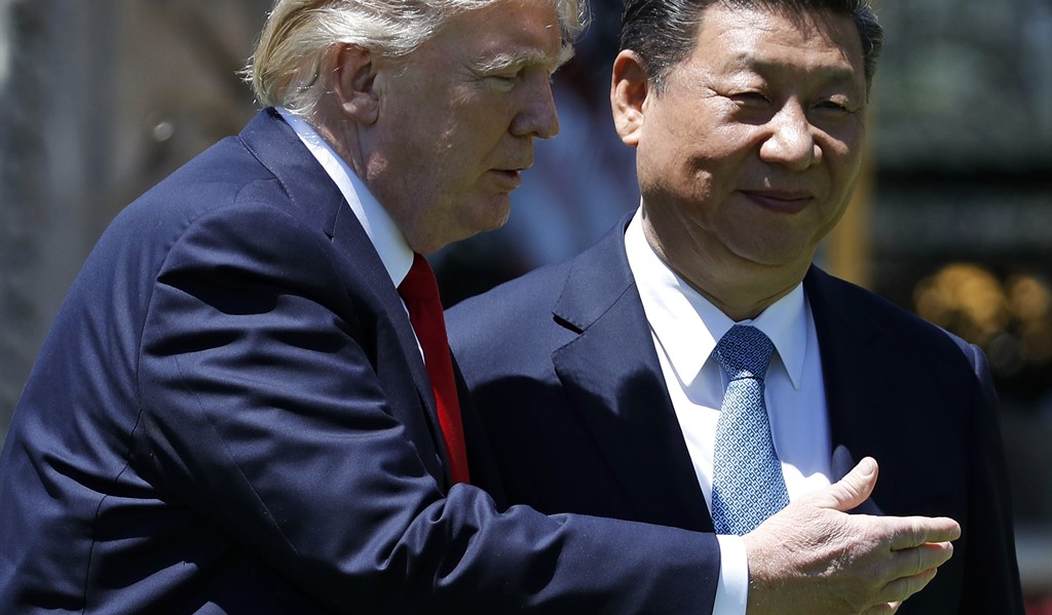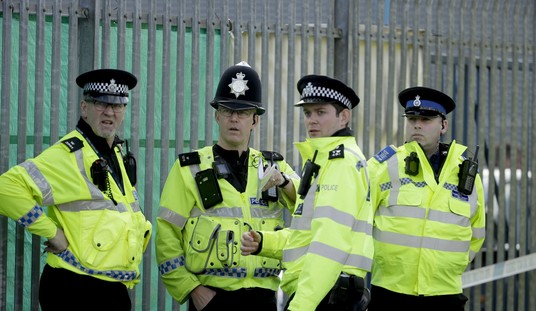If the Trump administration wanted to provoke a response from the various players in the Korean crisis, mission accomplished. After surprising foes and allies alike with an early installation of the THAAD anti-ballistic missile system in South Korea, China responded — but perhaps not as the White House had hoped. Rather than push North Korea harder to end its demonstrations of weapons systems, Beijing instead threatened to begin testing new weapons of its own instead:
On Thursday, a day after South Korea announced significant progress on the THAAD installation, the Chinese vowed to carry out new military drills and test new weapons.
“China’s military will continue to carry out live-fire military exercises and test new military equipment in order to firmly safeguard national security and regional peace and stability,” Defence Ministry spokesman Yang Yujun said in Beijing.
That represents a sharp reversal from a few weeks of public support for pressure on Pyongyang. China has long warned the US about the THAAD system as an infringement on their sovereignty and an escalation on the Korean peninsula, but both the US and South Korea had insisted that it was necessary for defense given the Kim regime’s development of ballistic missile systems — which the UN had forbidden in the first place. This conflict would have arisen anyway, but Beijing probably hoped that the political unrest in South Korea might have precluded the installation. The Trump administration’s rush to install it ahead of the election in two weeks was clearly meant as a signal that it wouldn’t be deterred. This is China’s signal of message received — and a reminder that they have a big stake in the balance of power on the peninsula, too.
That might have prompted a new signal from the White House. After conducting a briefing of the full Senate on North Korea, the Trump administration said they’d be open to more talks:
The Trump administration is calling North Korea "a very grave threat," but also says it's ready to negotiate: https://t.co/RzrUWCkzGS pic.twitter.com/APFw97Embk
— CBS News (@CBSNews) April 27, 2017
Members of the Senate were bussed from Capitol Hill to the White House where they were briefed by Secretary of State Rex Tillerson, Defense Secretary James Mattis, Chairman of the Joint Chiefs of Staff Gen. Joe Dunford and Director of National Intelligence Dan Coats on a review of the U.S. policy toward North Korea.
“The president’s approach aims to pressure North Korea into dismantling its nuclear, ballistic missile, and proliferation programs by tightening economic sanctions and pursuing diplomatic measures with our allies and regional partners,” the four officials said in a joint statement.
They said they’re engaging with members of the international community to “increase pressure on the DPRK in order to convince the regime to de-escalate and return to the path of dialogue” and signaled that the U.S. is open to negotiations.
“The United States seeks stability and the peaceful denuclearization of the Korean peninsula. We remain open to negotiations towards that goal. However, we remain prepared to defend ourselves and our allies,” they said.
That “softer tone” prompted a warmer response from Beijing:
China on Thursday welcomed an apparently softer tone by the United States on the North Korean nuclear and missile crisis but stressed its opposition to a U.S. missile defense system being deployed in South Korea. …
Asked about the U.S. comments, Chinese Foreign Ministry spokesman Geng Shuang said China had noted that many U.S. officials had recently made such remarks.
“We have noted these expressions, and have noted the message conveyed in these expressions hoping to resolve the Korean nuclear issue peacefully through dialogue and consultation,” he said.
“We believe this message is positive and should be affirmed.”
At the same time, however, Washngton and Seoul have apparently gotten on the same page in regard to further provocations from Pyongyang. Last week, when Trump insisted that the US would take on North Korea alone if necessary, South Korea rebutted that statement, insisting that the US consult with Seoul on any actions first. Today, though, South Korea announced that the two allies have agreed on specific actions to take if Kim Jong-un tests weapons again:
The US and South Korea agreed Thursday to take “swift punitive measures” against North Korea if provoked — while a Pyongyang official vowed the North would conduct nuclear and missile tests to counter Uncle Sam’s “hostile acts.”
Don’t expect that to necessarily mean a military strike, even if the USS Carl Vinson task group is still sailing into the region. “Punitive action” could well mean economic punishment, or more diplomatic isolation, or both. Right now, all sides are taking the measure of the others, and the impulse will be to escalate incrementally to continue that process. It’s telling that the Kim regime has not conducted its long-expected nuclear test — yet, anyway — and they may be looking for a way to get bought out of it. The offer of talks could be their exit strategy in the short term.








Join the conversation as a VIP Member